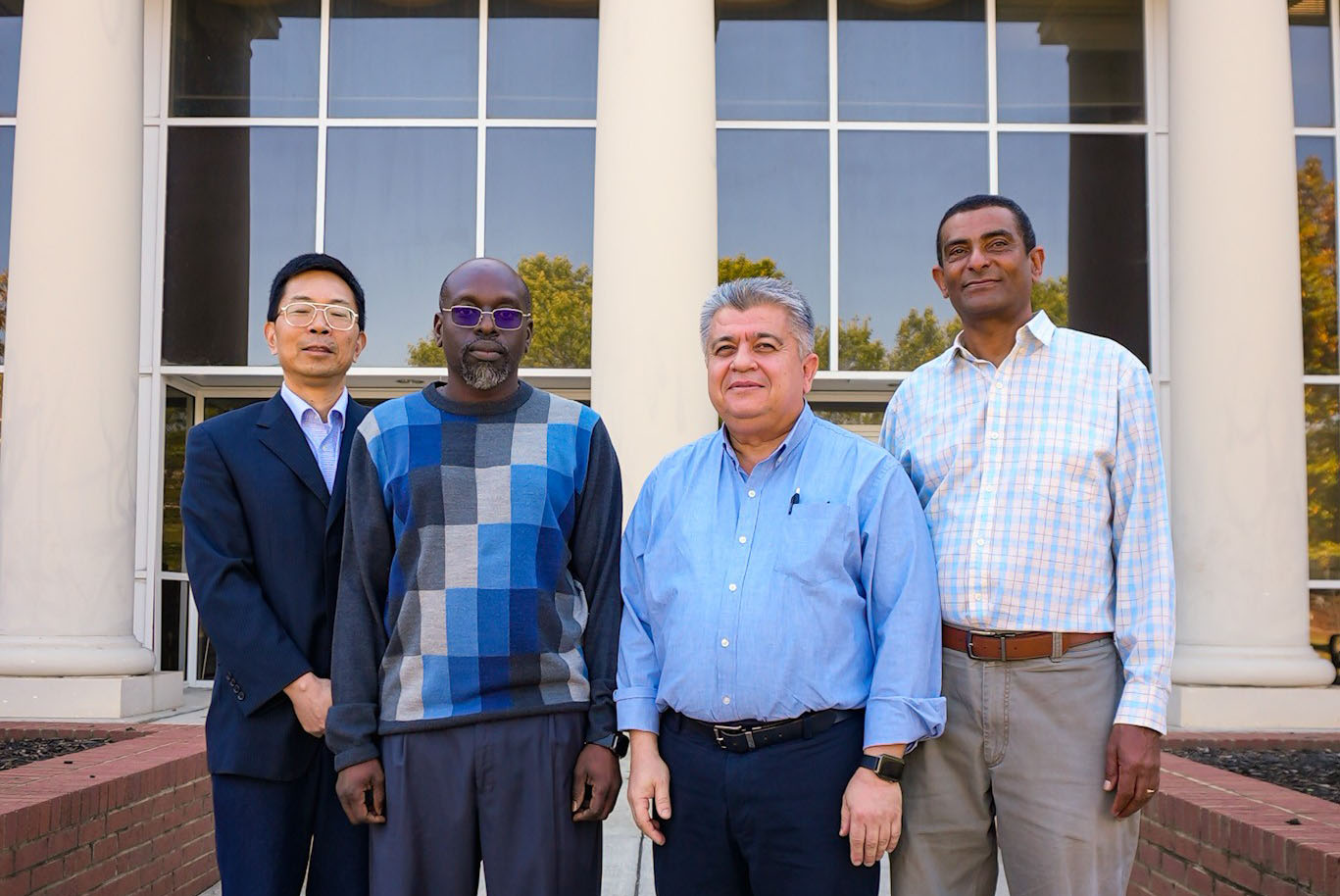AAMU Project to Advance Safer, More Efficient Energy Storage Technology

Alabama A&M University Researchers Awarded $1 Million DoD Grant for Battery Innovation
Alabama A&M University has received a nearly $1 million grant from the U.S. Department of Defense (DoD) to lead cutting-edge research in energy storage technology. The four-year project will focus on improving thin film solid-state batteries – a safer, longer-lasting alternative to traditional batteries.
The DoD-funded research, titled “Size Effects on the Efficiency of the Rechargeable Li and Na Thin Film Solid State Batteries,” will be led by Dr. Satilmis Budak (Principal Investigator) and co-investigators Drs. Zhigang Xiao, Mebougna Drabo, and Aschalew Kassu.
Key elements of the project include:
· Exploring how battery size impacts performance in lithium-ion (Li-ion) and sodium-ion (Na-ion) thin film solid-state batteries
· Fabricating and testing batteries in various sizes using cutting-edge technology and methods
· Training and mentoring six graduate and nine undergraduate students from STEM fields
· Creating new pathways into STEM careers for students from low-income backgrounds
· Building on prior research supported by a previous DoD equipment grant
Solid-state batteries are considered the next big advancement in energy storage due to their safety, stability, and potential to power future defense systems and consumer electronics.
“This support from the Department of Defense allows us to take our battery research to the next level,” said Dr. Satilmis Budak, Professor of Electrical Engineering and Computer Science and Principal Investigator. “We’re not only advancing technology that could benefit national defense, but we’re also forming hands-on opportunities for students who are the future of STEM innovation.”
The $999,996 award runs from March 31, 2025, through March 30, 2029, and will involve faculty from multiple STEM disciplines. The project also demonstrates AAMU’s growing reputation as a center for advanced materials research and workforce development in energy-related fields.
(Photo L-R) Drs. Zhigang Xiao, Mebougna Drabo, Satilmis Budak, Aschalew Kassu